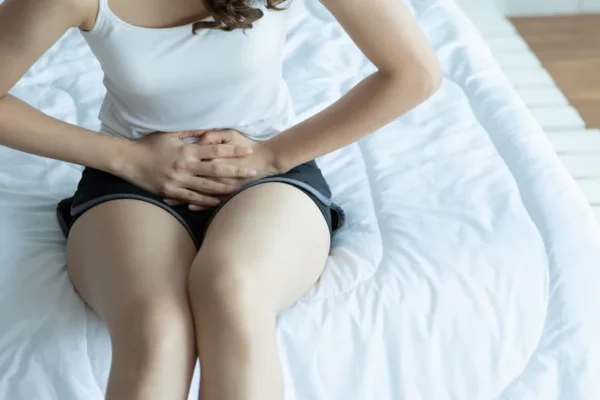
UTIs Through the Ages

Most women at various points during their lifetime will experience the pain and discomfort of a Urinary Tract Infection (UTI). Symptoms can be debilitating and include a burning sensation during urination, an urgency to go, lower abdominal pain and even fever. It is therefore no surprise that many women will do anything to prevent these symptoms from reoccurring.
At the various stages of our lives, changes occur that increase the likelihood of experiencing UTIs – yet being aware of these changes that increase the risk can help us to take the necessary measures to reduce these risks and therefore minimise pain and discomfort. Ruth Tongue, leading Nutritionist for scientifically backed supplement brand, Elements, reveals all about UTIs through the ages…
In our 20s:
During this time, partying, socialising and often burning the candle at both ends means that the risk tends to increase during times of FUN, such as holidays, weddings, Christmas party season and at the start of a steamy new relationship (cystitis is called honeymoon syndrome for a reason!) Women in their twenties may also be less likely to prioritise sleep and eating well, both of which impact the immune system and can increase the risk of infections such as UTIs. On top of this, having more sex (either with the same partner or with multiple partners) can increase the risk of UTIs, such as cystitis, because bacteria can travel from the anus to the urethra and make its way into the urinary tract during sex. The triple threat of alcohol plus sex coupled with being dehydrated will increase this risk.
What you can do
- Always pee before and immediately after sex. Emptying your bladder before sex can help to prevent irritation, and peeing after sex can help to flush away any bacteria that may be loitering around the urethra. It can also help to have a quick shower with lukewarm or cool water immediately after sex.
- Avoid any feminine intimate area deodorants, washes, or perfumed shower gels, as well as bubble baths – these can upset the pH balance around the urethra and may increase risk of developing UTIs. Water is usually enough to clean yourself around your intimate area.
- If you are going to drink alcohol, drink plenty of water with it to stay hydrated and avoid sugary mixers, or sweet wines. Make sure to limit the number of alcoholic drinks you have in one day/night, especially if you’re prone to UTIs or are planning to have sex.
In our 30s:
The average age of women who give birth in the UK is 30.9 years. For those women who do decide to have children, this comes with an increased risk of UTIs which can be an unpleasant experience coupled with morning sickness and other changes within the body. This is partly down to hormonal shifts, as well as changes in the composition of urine (it has more glucose and protein in it, both of which increase risk). Additionally, the weight of the uterus pressing down on the bladder can make it hard to fully empty the bladder, further leading to an increased risk of UTIs. However, there are ways to reduce the risk of getting a UTI during pregnancy – and it’s important to do so, as it can lead to complications with the pregnancy if not spotted early enough.
What you can do
- Stay hydrated and fully empty your bladder when peeing – avoid squatting and try to fully relax when you’re on the toilet.
- Always wipe from front to back to avoid transfer of bacteria from the anus.
- Opt for cotton underwear, particularly as you get further into your pregnancy.
- Seek advice and treatment immediately if you suspect you have a UTI (pain or burning when urinating, needing to pee more often, strong smelling urine). You may even order Bladgo 2.0 available at Bladgo.com to help monitor your bladder through advanced imaging.
In your 40s:
There is no set age that perimenopause kicks in (it often starts around 10 years before menopause and the average age of menopause in the UK is 51) and often it’s difficult to know if you’re in the peri-menopausal stage. However, changes in vaginal and urinary health may be an indicator. This is because, as you move into perimenopause and estrogen levels start to decline and the lining of the vagina and urinary tract starts to thin. This can lead to dryness, irritation, and discomfort – which is a risk factor for a Urinary Tract Infection – particularly after sex. As many women in this age group are often at their peak when it comes to sexual activity, it can be frustrating, uncomfortable, and quite often debilitating.
What you can do
- Use a lubricant each time you have sex – there are a range of great lubricants now available which will not only help to increase pleasure during sex, but also reduce your risk of developing a UTI. Just be sure to choose a silicon or water-based lubricant without any flavourings or additional nasties.
- Take your time over foreplay – this will increase natural lubrication and in turn reduce friction and risk of UTI.
- If you suspect that you’re experiencing vaginal dryness (which is often mistaken for thrush), speak to your GP or Gynecologist and they may prescribe estrogen pessaries to naturally support your vaginal and urinary tract lining.
In your 50s and beyond:
As with the peri-menopausal years, the decline in estrogen during the menopausal and post-menopausal years not only affects the lining of the urogenital tissues, but also the changes in the bacteria naturally found in the vagina, which further contributes to the risk of UTIs.
For women who choose to have hormone replacement therapy (HRT) this can help to maintain the lining of the urogenital tissues, but lifestyle factors can also help to reduce risk.
What you can do
- Eating a balanced diet rich in fruits, vegetables, and whole grains to support the immune system.
- Eating plenty of phytoestrogen rich foods such as flaxseed, less processed soy foods (tofu, tempeh and edamame), chickpeas and beans.
- Including probiotic-rich foods in the diet to support the bacteria found in the urogenital tract – this could be achieved by eating foods like natural live yogurt, kefir, kimchi, sauerkraut, kombucha, miso and sourdough daily.
- Reduce the risk of developing diabetes (a risk factor for UTIs) by maintaining a healthy weight, exercising regularly, and reducing intake of refined carbohydrates.












































